This little story in the news caught my eye a while back: a tourist was arrested in Myanmar for pulling the plug of an amplifier that was broadcasting a monk’s sermon because it was disturbing his sleep. It’s something that we’re sadly seeing more of each year: tourists being disrespectful to people, local customs, traditions and rules, and not to mention defacing historic monuments and damaging nature. I often think of ways of how to be a responsible tourist during my travels around the world, especially because I’ve had my fair share of experiences and heard many horrific stories involving badly-behaved tourists, like the tourist who tried to smuggle a penguin from Boulders Beach near Cape Town in his coat as a pet to take home. Or the guy who threw pens and soap out the bus window in Cuba and laughed as people scrambled to the ground to grab them. Or the tourists who yelled at the local vendor on the beach in Phuket for not having cold beer, a few days after the tsunami which wiped out the vendor’s home and half her family. Or the tourist who scribbled “xyz was here!” onto one of the Easter Island statues! And I can go on and on…
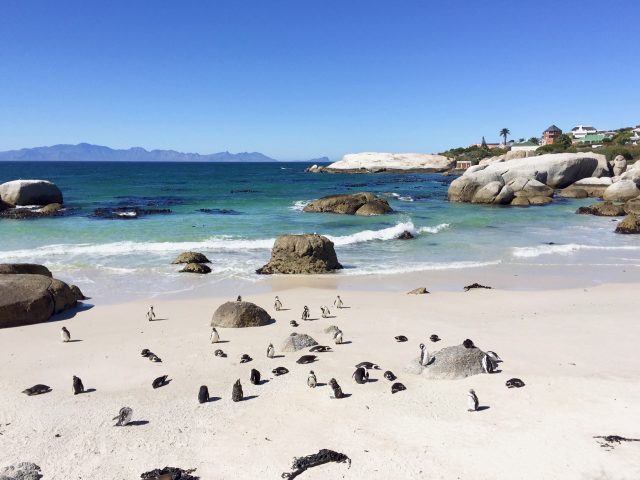
How to be a responsible tourist: awareness, respect and empathy
I have to be honest though. I haven’t always been a responsible tourist myself – I’ll never forget that moment when I was chased out of a market by two Mayans in Chiapas, Mexico, for taking photos of them. That’s one lesson (also highlighted below) I learned very quickly!
Or the time I was led to believe that posing with an adult cheetah would help with conservation efforts – I later found out that the cheetah was drugged and the use of the cheetah in an ‘ambassador’ role was highly questionable. Not my proudest moment, but it was an important lesson about animal exploitation and conservation efforts. Since then, if I’m going on a tour that involves observing or interacting with wild animals (this could be a snorkelling trip to swim with seals, turtles, etc.., a safari or a whale-watching trip), I do some research on the conservation efforts in that area and I check how committed each operator is before I book. It doesn’t take much effort but it can make a big difference.

I sometimes catch myself unaware but I do my utmost to be conscious of my surroundings and of local customs. If I’m not sure, I see what the locals do first, or I’ll ask them. To me, being a responsible tourist involves being aware and respectful, and showing empathy. For instance, if I’m passing a place with picturesque homes, I always make sure to respect the residents’ privacy when taking photos. If I’m visiting a local’s home, I’ll ask about any customs that should be observed.
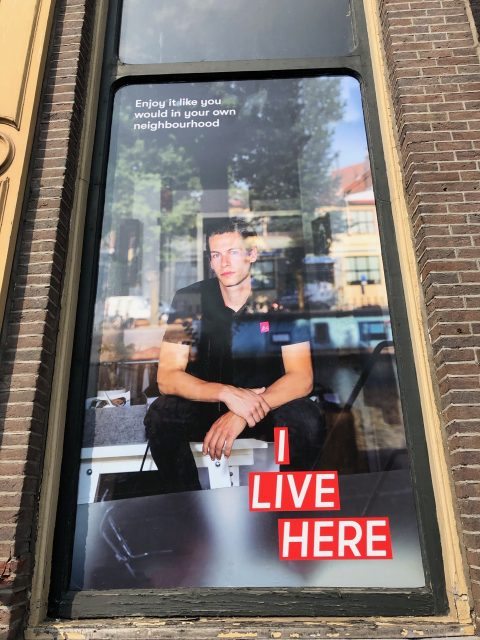
I may not agree with some customs or traditions and I may occasionally voice my disagreement but always in a respectful manner.
In addition, I always stick to the paths or trails around historic monuments or in national parks, I never climb over a fence for a better photo, and I always resist the urge to touch a monument, like statues, or bring a free souvenir home with me in the form of a seashell or pebble.

One other way to be a responsible tourist is to make a contribution to the communities we visit, however big or small. This could be in the form of eating local food at streetfood vendors or locally-run restaurants, or shopping locally (whether it’s a bottle of lavender lotion, locally-produced spices or hot sauces, or a handmade craft).
Simply abiding by these principles has allowed me to enjoy travel so much more and pick up many valuable lessons and insights along the way, which, to me, is what travel is all about.
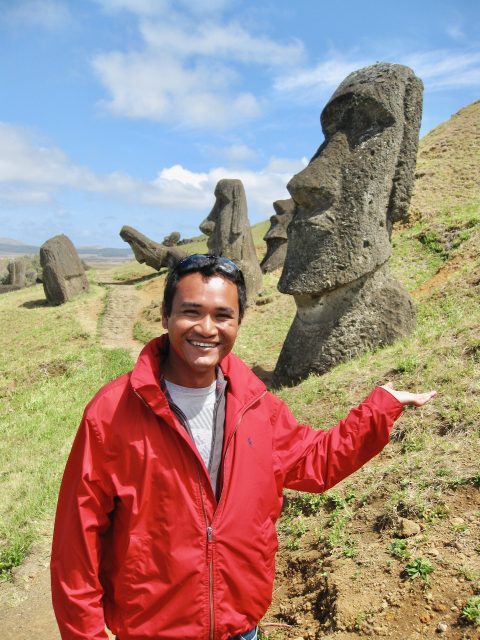
Responsible travel: tips from my blogger friends:
I asked my travel blogger friends for their tips on how to be a responsible tourist and this is what they had to say:
“The key to being a responsible tourist comes down to empathy and the simple saying “do onto others as you’d have them do onto you”. Regardless of what part of the world you’re in, remember we’re all connected and wanting the same things in life which is health, happiness and respect. If you follow these simple guidelines you’re sure to have a meaningful experience and will most likely connect on a deeper level with the destination you’re visiting and the people who call it home.” – Rob Lloyd from Stop Having a Boring Life.
“If someone is not aware of local or general etiquette in travel, it’s always a good idea to do some research before going on a trip. Google it or any local will help! But mostly, everyone should be okay with simply being a nice person, respecting foreign cultures and people on their way.” – Angelika Schwaff from Reisefreunde.
This is echoed by Erik van Erp from the Around the Globe blog: “A lot of people don’t seem to know or care about the culture and country they visit. You need to adapt to the standard of the country and people you visit, instead of walking around in a mini-bikini, or shirtless in countries where this is frowned upon.”
A smile can often make such a big difference.
“Get off the beaten path. Get out of the tourist zone. Visit and possibly stay in neighbourhoods where you can find mainly locals. You will have a much more authentic experience. Plus, it will be far cheaper. Walk everywhere. Use public transport or hire a bike for the day. Treat people the way you like to be treated – you’d be surprised how some tourists can be total jerks and lose their manners when they travel abroad. Respect local customs. Be patient. Plus remember to smile. A smile can often make such a big difference.” – Kash Bhattacharya from Budget Traveller.

“My top tips would be: a) When you’re visiting a landmark or in front of a masterpiece, use only your eyes and keep your hands in your pockets. b) When you’re in nature, always bring a bag with you to collect your garbage. c) Respect the local customs. If you can’t cope with them, change your destination or stay home.” – Simon Falvo from Wild About Travel. Simon also wrote: “What Makes People Behave Like Dumb-Ass Tourists”
“Remember that you are a guest at someone else’s home – be that a country or a hotel or anything – what would you do if you went to visit your best friend’s parents house? In this scenario, people would be at their best behaviour and it saddens me when it is not the case. Be nice, be patient, don’t disturb others. Be open minded – things may not happen at the pace that you are used to at home – and that is OK, because that is why you travelled to place X in the first place.” – Ana Silva O’Reilly from Mrs O Around the World.
“Ask for permission before clicking photos of locals. I experienced that first hand in a small village in the Indian Himalayas, while talking to an old mountain lady. A man walked right up to us, and without even a smile on his face, blinded us with a flash and walked away. The lady lamented how that is nothing new, that most people visit to photograph them but leave without knowing anything about their lives. Some of these nameless pictures will be exhibited and sold.
That is the day I decided that as much as the native people of a place make for good subjects for travel photography, before I click any faces with my camera, I will have both their permission and their story. Imagine how you would feel if someone shoved a camera in your face without so much as exchanging a word with you.” – Shivya Nath from The Shooting Star. Shivya also wrote: “5 Ways I’ve Changed to Travel More Responsibly“.
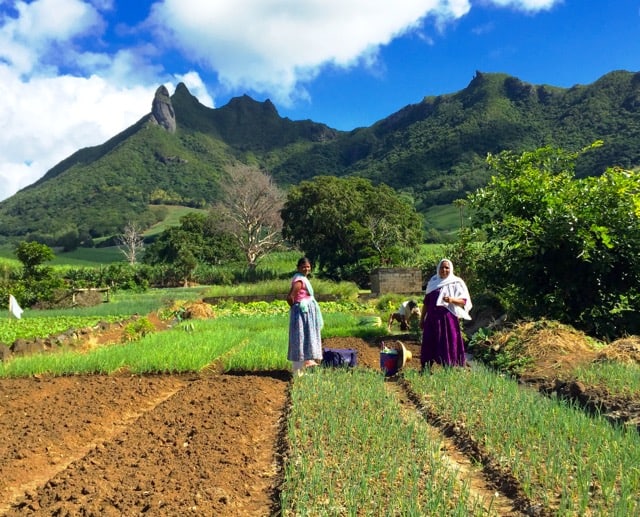
“Travel is only going to grow…currently at 1.2 billion travelers/year and expected to go until 2 billion in 2030. That’s a lot of opportunity for both sides of the spectrum, all the “good” that we know travel can be (i.e., benefiting local communities, connecting people, reducing fear of “the other”, etc.). Sadly, this also means potentially higher numbers of disrespectful folks and the environmental, cultural and economic destruction that they leave in their wake. But, I do feel that the more people are aware of their actions and understand the impact they can have — positive and negative — the more they will make decisions aligned with the “positive”.” – Audrey Scott from Uncornered Market. Audrey also wrote: “Redefining Tourism: 20 Tips for the Mindful Traveler.”
One more tip from me: if you’re sensitive to noise when you sleep, ear-plugs can help, or even better, noise-cancelling headphones!
Travel near or far. Travel safe. And above all, travel responsibly!
Check out my travel planning resources page.

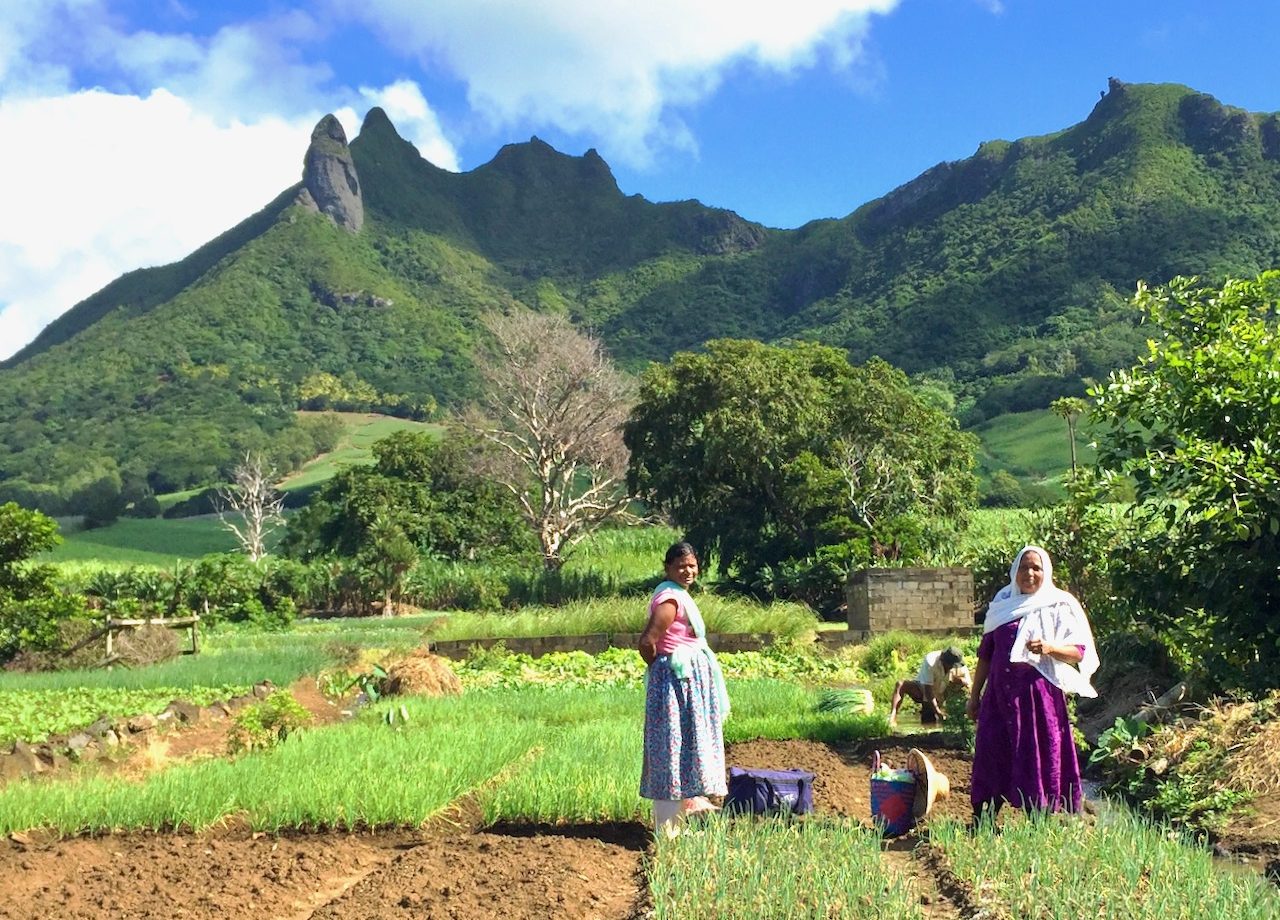






It is a very good article, All tourists must know about the places before they visit, especialy about their culture, rules and its very important that we respect the locals.
Your post is on a topic that anyone who leaves their front door, should read! It’s so important to be respectful and sensitive to local issues.
Exactly everyone wants the same things in life which is health, happiness and respect. Before going to visit any country or city we need to adapt to the standard of the country.
Thank you so much for guiding about the better and responsible tourist.
Travel is all about having a new experience away from your daily activities. It’s about getting out from the adopted environment to a new environment. You can see the new place and have a great memories of the place regarding local food, Local people, Culture and many more. But people forgot they are responsible for making the environment neat and clean. I have a travel team and we collect the dust and the plastic bags from hilly region of Nepal to make next batch of traveller to be humble with nature.
This article will help a lot of amatured traveller around the world before making any trip
Oh that first paragraph gave me a migraine. Who thinks it’s okay to vandalize the Easter Islands?! And seriously, warm beer is the biggest problem in your life? When I book travel for clients I always give them information on the local customs if they are traveling overseas.
Hi Lelde,
That sounds terrible! The poor penguins! 🙁
I wrote this post as a bit of a rant but also to offer some views on how we can travel more responsibly. My hope, in this age of globalisation, is that people will be more aware of their responsibilities to others as well as to nature whenever and wherever they travel. Most of it is just common sense but people have to be made aware of the consequences of their actions… and I hope this post contributes to that.
Cheers,
Keith
Hear hear! This really resonated with me. Thanks for bringing it up Keith. The penguin story reminded me of my own experience at Phillip Island in Australia. Visitors are explicitly told not to take photos because the flashes and clicks can disorientate, confuse and otherwise disturb the creatures yet so many people think they can get away with using camera phones etc. It’s literally a case of people doing exactly what they’re told not to do. I was devastated by the lack of common sense and humanity, and just couldn’t fathom what they feel like they can gain from what is probably going to be a really bad photo of a penguin! A traumatised penguin at that.
Responsible, sustainable tourism is really important issue, yet it is such a neglected one… Thanks for the thread:)
I hope many people will read this post before they travel! 🙂
I am a Chinese myself but I wish more China tourists and travelers would read your post before they travel. No kidding man! Seriously!
Great advice and I do agree that we should respect others rules,nature and culture. Can prevent trouble too
That baffles me as well! I agree, the best we can do is set an example and create awareness for best practices.
Thanks for your comment Edward!
Cheers,
Keith
How on Earth did that tourist think they were going to get the penguin home undetected? There are some really stupid people out there, but the best we can do is set an example ourselves … great post!
Great advice and I do agree that we should respect others rules,nature and culture. Can prevent trouble too
Thanks Fiona! That really annoys me no end as well and spoils the experience for everyone else. Such a shame. I’m not kidding myself; there will always be idiots out there but I hope that by raising awareness of every tourist’s responsibility, that there will be more who’ll be more conscious when they travel.
Cheers,
Keith
Love this. I’ve been preaching this a lot lately in my travels. I remember when I was living in the UK, and I heard that they were putting up barriers around Stonehenge because tourists were chipping off pieces and writing on the stones. I was shocked and outraged! Unfortunately I’m not sure what advice can be given to such stupid, inconsiderate tourists… They really do ruin it for the responsible, respectful travelers.
Hi Victoria,
Exactly, right? Would anyone wear a bikini to church?!?! Simple common sense really.
And… smiling ALWAYS helps! 🙂
Cheers,
Keith
Great topic Keith!
Your post is on a topic that anyone who leaves their front door, should read! It’s so important to be respectful and sensitive to local issues.
I remember reading about some British girls who were arrested after visiting a temple in Chiang Mai wearing skimpy bikinis! I was really upset when I heard ‘cos I mean come on!
Would anyone wear a bikini to church? Noooo! So why a holy temple in a foreign country!
And as for taking photographs. Local people aren’t animals. They have feelings too. Just smile, and ask. Most importantly, smile!
Thank you Brittany for your lovely comment. It’s a topic I care very much about and hope this post will help to create more awareness amongst tourists and be more conscious and respectful when they travel.
Cheers,
Keith
This is a fantastic article! I try my best to be aware of my actions and respect the local culture when I travel somewhere new. I enjoy learning about the culture, traditions and customs of a place before I arrive so that I can better understand the destination.
I am glad that responsible travel is a growing movement!